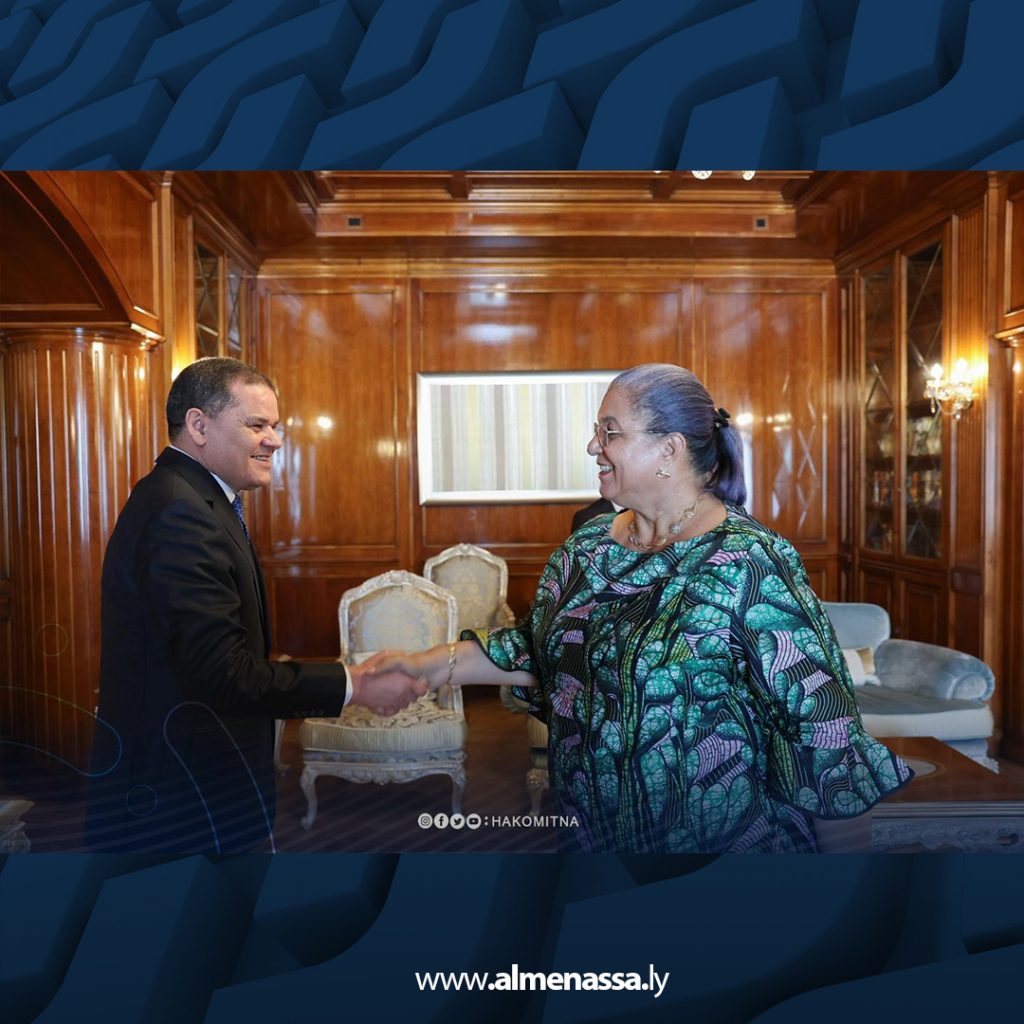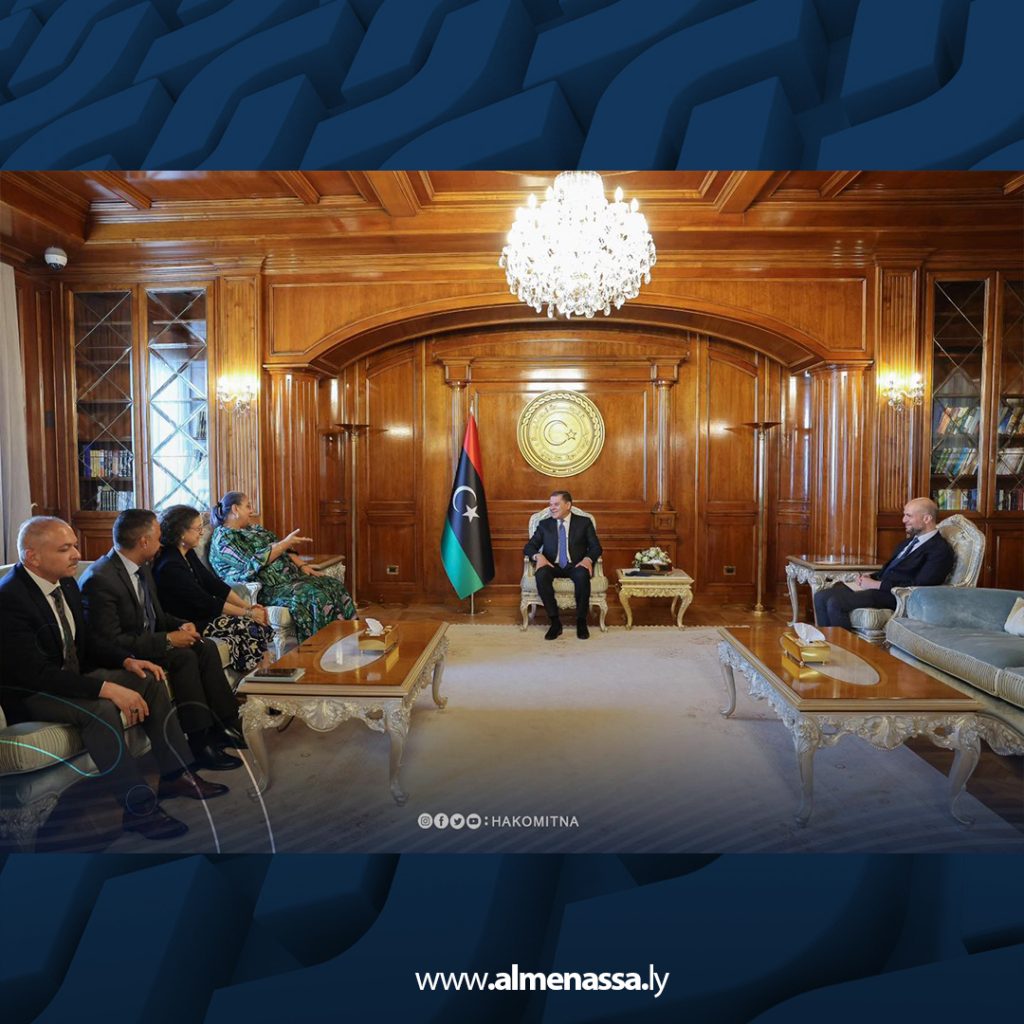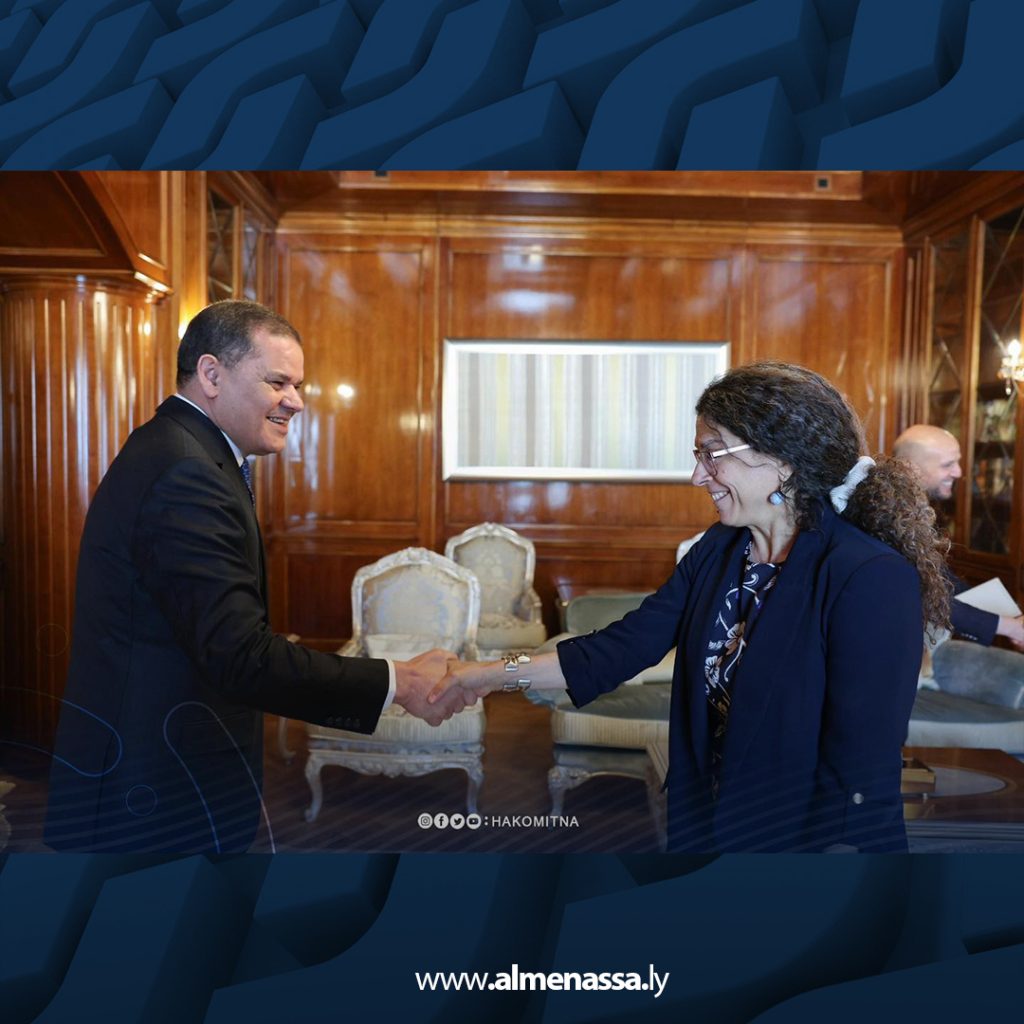The Head of the Government of National Unity (GNU), Abdul Hamid Dabaiba, held a meeting today, Tuesday, with the Special Representative of the UN Secretary-General to Libya, Hannah Tetteh, at the Council’s headquarters in the capital, Tripoli. The discussion focused on arrangements for Libya’s participation in the International Follow-Up Committee on Libya (IFCL) meeting, scheduled to take place in Berlin, Germany, on June 20, an initiative led by the German Foreign Ministry in coordination with the United Nations Support Mission in Libya (UNSMIL).

During the meeting, Tetteh clarified that she provided Dabaiba with an official briefing on the meeting, which will be held at the ambassadorial level of the countries concerned with the Libyan file. It aims to discuss current political challenges and follow up on the outcomes of UNSMIL’s Advisory Committee regarding the constitutional and electoral path. She also noted that the Libyan Foreign Ministry has been informed of the necessity of sending an official representative from the state to participate.

The meeting also touched upon the latest security developments in Tripoli. Dabaiba confirmed that the Ministry of Interior has practically begun implementing the security and military arrangements plan supervised by the Presidential Council. This plan includes the complete withdrawal of armed formations from vital facilities and their return to their barracks, in preparation for handing over security tasks to regular agencies. Dabaiba explained that this plan aims to end the display of weapons outside state institutions and enable official security agencies to carry out their role in maintaining security and stability. He praised the existing coordination with the Presidential Council, asserting that efforts are ongoing until the plan is fully implemented.
Dabaiba reiterated his government’s commitment to supporting UN efforts to end the transitional phase and effectively enter an electoral process based on a clear constitutional foundation, reflecting the will of the Libyan people and fulfilling their aspirations for lasting stability and elected legitimacy



